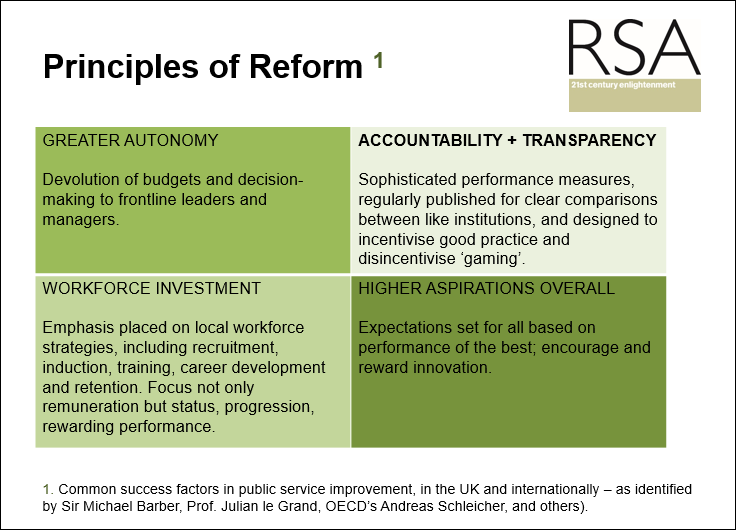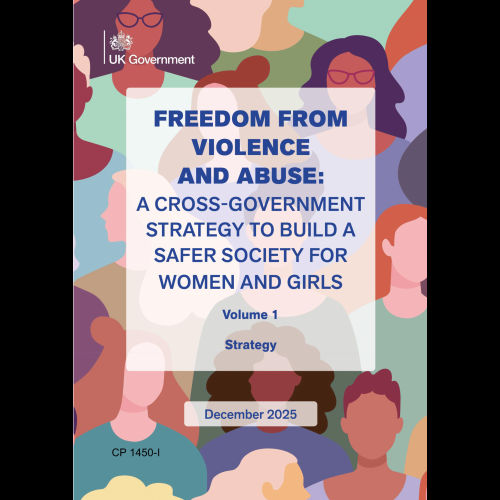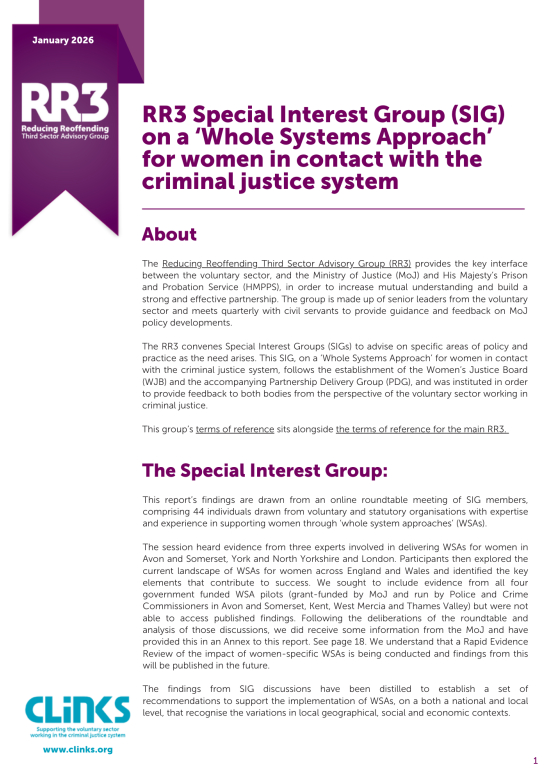This is a guest blog from Pamela Dow of the New Futures Network (NFN). NFN aims to be a practical resource for prison leaders and those working in and around prisons as the reform agenda is implemented. Pamela is former Director of Strategy to the Ministry of Justice and has been supporting the 'early adopter' Reform Prisons since October last year, based at HMP Wandsworth. She and Rachel O'Brien, who led the RSA's Future Prison Project, are working together to establish the NFN's shape and scope in an initial development phase.
There's a paradox at the heart of the Government's plans to improve prisons and probation services. To be fair, it's the same paradox that has existed in all the most ambitious public service reform strategies in recent years. Success relies on leaders and managers at the frontline being free to make decisions, and accountable for outcomes. Institutions thrive when they are locally responsive and connected, which means investing in people and relationships. Yet autonomy by its nature cannot be prescribed from Whitehall, and relationships aren't easy to mandate using public policy governance frameworks.

The vision set out by the Secretary of State requires as much a change in culture and behaviour as in legislation or structure. Some people and organisations are already operating in this way, and will flourish immediately; some will take more time to adapt and take advantage of the new world.
The question for all of us is this: what can we do to help people understand what reform means and requires, and make the transition, which doesn't inadvertently suffocate or standardise precisely the freedom and innovation we need?
Our hope is that a New Futures Network provides at least part of the answer.
Currently in development phase, the New Futures Network (NFN) aims to be a practical resource for everyone working in and around prisons: brokering new and deeper relationships, unblocking barriers, and spreading success. It will provide the tools and answers to the 'Why', the 'What' and the 'How' of reform.
What does a strategic relationship with volunteers and charities look like in a reform prison? What new skills are needed to make it fly? How can prison and probation leaders and managers work more closely with each other and local employers? How do leaders build a team and culture where security, safety and rehabilitation are mutually dependent and reinforcing? Should I spend my budget on this intervention or that one?
The potential collective contribution of all organisations (voluntary, public and private sector) involved in protecting the public and rehabilitating people in prison is immense, and the NFN wants to be the platform to make us much more than the sum of our parts. It will not duplicate or replace any existing successful programme, and will continue to prioritise the meaningful engagement of prison staff and prisoners from inception.
Please take a few moments to find out more and feed in your ideas at this stage.
Thank you for your contribution and please stay in touch! @NewFutrsNet.
What's new
Blogs
Violence Against Women and Girls (VAWG) Strategy Blog
Publications
RR3 Special Interest Group (SIG) on a ‘Whole Systems Approach’ for women in contact with the criminal justice system
The RR3 SIG drives a Whole Systems Ap
Latest on X
The role is for a leader from an organisation focused on racially minoritised people, with expertise in service delivery, policy, advocacy, or related areas in criminal justice. Racial disparities are present at every CJS stage. This role ensures these voices are central in shaping policy to help address and eradicate them. Apply by Mon 18 Nov, 10am. More info: https://www.clinks.org/voluntary-community-sector/vacancies/15566 #CriminalJustice #RR3 #RacialEquity

